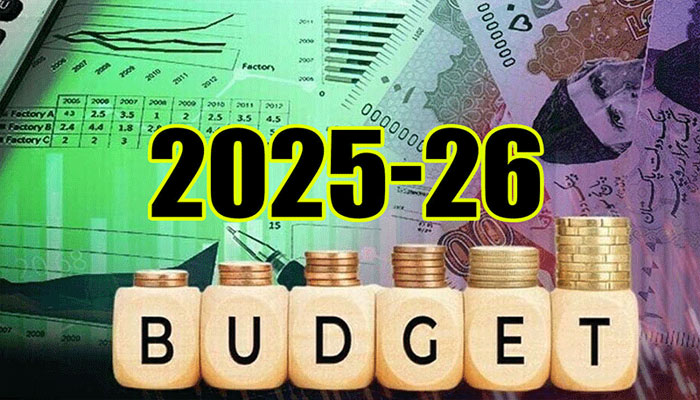ISLAMABAD – The federal government is likely to revise the date for presenting the annual budget for upcoming fiscal year 2025-26 once again.
Due to Eidul Azha, there will be public holidays on June 7 and 8. The third day of Eid, June 9, will have to be declared a working day, if the government plans to present the budget as per the schedule.
The already announced schedule includes convening the National Economic Council (NEC) meeting and releasing the Economic Survey on June 9. However, conducting both on the same day may not be feasible.
It is recalled that NEC meeting is attended by the chief ministers of all four provinces and Gilgit-Baltistan. The Prime Minister of Azad Kashmir also attend the NEC meeting.
The NEC meeting finalises the national development program and typically lasts the entire day. Traditionally, there is a two-day gap between the NEC meeting and the budget presentation.
Keeping in view the situation, the government may extend the date to present the federal budget by two days to accommodate this schedule.
Meanwhile, Pakistan is facing intense International Monetary Fund (IMF) scrutiny as fiscal consolidation is at crossroads.
The global lender announced that its discussions with South Asian nation over upcoming fiscal year 2026 (FY26) budget will continue in coming days, after conclusion of staff-level mission.
IMF mission wrapped up on Friday last week, shortly after the federal government postponed the budget presentation date from June 2 to June 10. The delay reflects ongoing efforts to reach consensus with the IMF over fiscal targets and reform measures.
Led by Mission Chief Nathan Porter, IMF delegation arrived in capital on May 19 to assess Pakistan’s economic conditions, monitor progress on reform commitments, and evaluate the government’s budgetary strategy for the new FY.
In statement released at end of visit, Porter termed discussions as constructive, covering fiscal plans, structural reforms, and policy frameworks under both the 2024 Extended Fund Facility (EFF) and the 2025 Resilience and Sustainability Facility (RSF).
Read more: Finance minister shares update on civil, military salaries ahead of budget
Pakistani officials reaffirmed their pledge to continue fiscal discipline while ensuring social protection and essential development spending. The government has set a primary budget surplus target of 1.6% of GDP for FY26.
Key areas of focus in the ongoing talks include enhancing tax compliance, expanding the tax base, and prioritizing government expenditures. Energy sector reforms to improve financial sustainability and reduce operating costs also featured prominently in the dialogue.
IMF emphasized the need for continued tight, data-driven monetary policy to anchor inflation within the State Bank of Pakistan’s 5–7% target range. Additionally, rebuilding foreign exchange reserves and ensuring a market-based exchange rate regime were highlighted as essential for improving external resilience.





Comments are closed, but trackbacks and pingbacks are open.